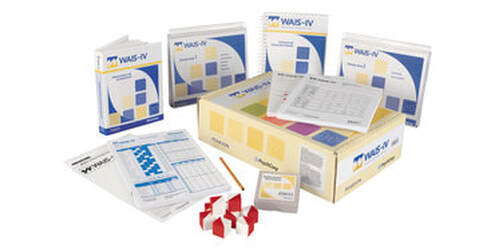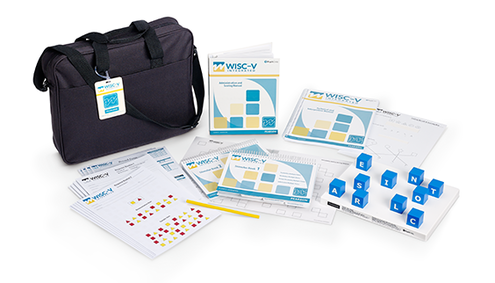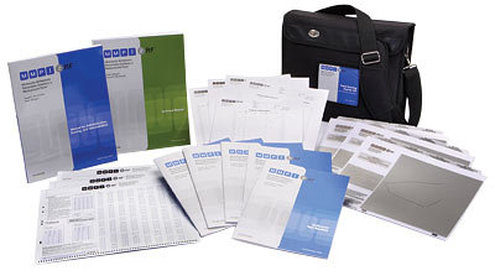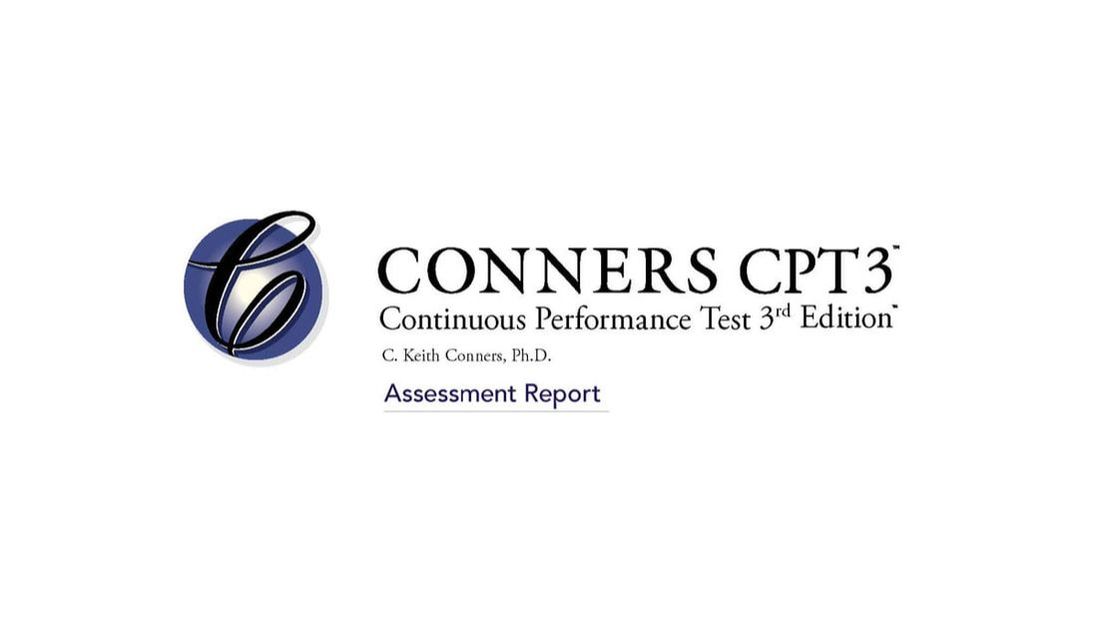Psychological Evaluations for Children
A comprehensive battery of psychological tests is available for children ages six through fourteen who may be experiencing significant psychological disorders or emotional difficulties. A full battery of testings can be helpful for developing a comprehensive treatment plan or an additional resource for the child who has not been responding to traditional treatment approaches. It is often helpful to complete comprehensive battery of tests that assess intellectual ability, academic achievement in reading and mathematics, and screen for Attention Deficit Hyperactivity Disorder (ADHD), and other behavioral and/or emotional disorders.
All complete full battery psychological/psychoeducational assessments include:
Charges can vary based on age and focus of assessment. A detailed statement of fees can be provided for clients' submission to insurance companies for self-filing claims. Please note that some insurance companies do not cover psychological testing for developmental delays or learning issues, as they deem these services 'educational;' rather than 'medical'.
Assessments Used
-Clinical interview (Mental Status Exam)
-MMPI-A
-WISC V
-Woodcock Johnson IV- cognitive & achievement
-Connor’s CPT3
-Advanced Test of Attention (ATA)
-Beck Depression +Beck Anxiety
-TOVA
-Behavior Intervention Guide (BASC3)
All complete full battery psychological/psychoeducational assessments include:
- An intake session with parents/guardians (approximately 50minutes).
- All testing sessions necessary
- A feedback session with parents/guardians to review written results and discuss recommendations (approximately 30-50 minutes)
- A comprehensive written report (typically 7-12 pages) with suggestions for intervention is provided.
Charges can vary based on age and focus of assessment. A detailed statement of fees can be provided for clients' submission to insurance companies for self-filing claims. Please note that some insurance companies do not cover psychological testing for developmental delays or learning issues, as they deem these services 'educational;' rather than 'medical'.
Assessments Used
-Clinical interview (Mental Status Exam)
-MMPI-A
-WISC V
-Woodcock Johnson IV- cognitive & achievement
-Connor’s CPT3
-Advanced Test of Attention (ATA)
-Beck Depression +Beck Anxiety
-TOVA
-Behavior Intervention Guide (BASC3)
Psychological Evaluations for Adults
Psychological evaluation for adults can take many forms and serve many purposes depending on the nature of the difficulty. Testing can help adults to gain more depth in understanding their emotional difficulties and zero in on the areas that can be examined and improved. Psychological testing can also uncover undiagnosed disorders such as ADHD or learning Disabilities, identify factors in employment decisions, or develop different treatment approaches. Psychological evaluations for adults can be individually tailored to meet the specific needs for the client.
Charges can vary based on the focus of assessment. Please expect the fee for a full battery of assessments to be approximately 2,000,000 KRW. A detailed statement of fees can be provided for clients' submission to insurance companies for self-filing claims. Please note that some insurance companies do not cover psychological testing for developmental delays or learning issues, as they deem these services 'educational;' rather than 'medical'.
All complete full battery psychological/psychoeducational assessments include:
Assessments Used
-Clinical interview (Mental Status Exam)
-MMPI-2
-WAIS IV
-Woodcock Johnson IV- cognitive & achievement
-Connor's CPT3
-TOVA
-Thematic Apperception Test (TAT)
-Beck Anxiety
-SCT
-HTP
-Symptom Checklist-90r
Charges can vary based on the focus of assessment. Please expect the fee for a full battery of assessments to be approximately 2,000,000 KRW. A detailed statement of fees can be provided for clients' submission to insurance companies for self-filing claims. Please note that some insurance companies do not cover psychological testing for developmental delays or learning issues, as they deem these services 'educational;' rather than 'medical'.
All complete full battery psychological/psychoeducational assessments include:
- An intake session with the examinee (approximately 50minutes).
- All testing sessions necessary
- Possible informational gathering sessions with family members/partner
- A feedback session to review written results and discuss recommendations (approximately 30-50 minutes)
- A comprehensive written report (typically 7-12 pages) with suggestions for intervention is provided.
Assessments Used
-Clinical interview (Mental Status Exam)
-MMPI-2
-WAIS IV
-Woodcock Johnson IV- cognitive & achievement
-Connor's CPT3
-TOVA
-Thematic Apperception Test (TAT)
-Beck Anxiety
-SCT
-HTP
-Symptom Checklist-90r
Available Psychological Assessments
1. WAIS-IV (Wechsler Adult Intelligence Scale)
|
The Wechsler Adult Intelligence Scale (WAIS-IV) Fourth Edition is the most advanced adult measure of cognitive ability, based on recent research in the area of cognitive neuroscience and the theories and work of David Wechsler PhD. The WAIS-IV measure is appropriate for use with individuals aged 16–90 years. For individuals under 16 years
The WAIS takes 60-90 minutes to administer core subtests. |
2. WISC-V (Wechsler Intelligence Scale for Children)
|
The Wechsler Intelligence Scale for Children (WISC), developed by David Wechsler, is an individually administered intelligence test for children between the ages of 6 and 16. The Fifth Edition (WISC-V; Wechsler, 2014) is the most current version.
The WISC-V takes 45–65 minutes to administer. It generates a Full Scale IQ (formerly known as an intelligence quotient or IQ score) that represents a child's general intellectual ability. It also provides five primary index scores: Verbal Comprehension Index, Visual Spatial Index, Fluid Reasoning Index, Working Memory Index, and Processing Speed Index. These indices represent a child's abilities in discrete cognitive domains. Five ancillary composite scores can be derived from various combinations of primary or primary and secondary subtests. |
3. MMPI-2 (Minnesota Multiphasic Personality Inventory)
|
The Minnesota Multiphasic Personality Inventory (MMPI) is a standardized psychometric test of adult personality and psychopathology. Psychologists and other mental health professionals use various versions of the MMPI to help develop treatment plans; assist with differential diagnosis; help answer legal questions (forensic psychology); screen job candidates during the personnel selection process; or as part of a therapeutic assessment procedure.
The original MMPI was developed by Starke R. Hathaway and J. C. McKinley, faculty of the University of Minnesota, and first published by the University of Minnesota Press in 1943. It was replaced by an updated version, the MMPI-2, in 1989. A version for adolescents, the MMPI-A, was published in 1992. An alternative version of the test, the MMPI-2 Restructured Form (MMPI-2-RF), published in 2008, retains some aspects of the traditional MMPI assessment strategy, but adopts a different theoretical approach to personality test development. |
4. Woodcock–Johnson IV
|
The Woodcock–Johnson Tests is a set of intelligence tests first developed in 1977 by Richard Woodcock and Mary E. Bonner Johnson.The Woodcock-Johnson IV represents a significant overall advancement in the measurement of individual abilities. The WJ IV system is structured to create comprehensive cognitive and achievement batteries that can be used in conjunction with one another or as standalone batteries.
The WJ IV Tests of Achievement are ideal for accurately screening, diagnosing, and monitoring progress in reading, writing, and mathematics achievement areas. The WJ IV Tests of Cognitive Abilities support a new era of CHC theory and contain the greatest breadth of cognitive abilities of any standardized body of tests.They may be administered to children from age two right up to the oldest adults (with norms utilizing individuals in their 90s). The previous edition WJ III was praised for covering "a wide variety of cognitive skills." |
5. Conners CPT3 (Conners Continuous Performance Test 3rd Edition)
|
The Conners Continuous Performance Test Third Edition™ (Conners CPT 3™) measures attention-related problems in individuals aged eight years and older. By indexing the respondent’s performance in areas of inattentiveness, impulsivity, sustained attention, and vigilance, the Conners CPT 3 can aid in the assessment of Attention-Deficit/Hyperactive Disorder (ADHD) and other neurological conditions related to attention. The Conners CPT 3 provides objective information about an individual’s performance in attention tasks, complementing information obtained from rating scales such as the Conners 3®.
The Conners CPT 3 can be used in conjunction with the Conners Continuous Auditory Test of Attention™ (Conners CATA™), which assesses auditory processing and attention-related problems in individuals aged eight years and older. The Conners CPT 3 and Conners CATA can be purchased as a combo kit or individually. Click here to learn more about the Conners CATA. |
7. Prepare-Enrich Assessment
|
Prepare-Enrich Assessment - The importance of building strong marriage cannot be emphasized enough. Prepare-Enrich will help you see how you are different from your partner. It will suggest ways for you to build a healthy relationship embracing the differences and disagreements. The assessment can be done in Korean, English, Spanish, German, Italian, Japanese, Portuguese.
Some Areas that can be explored: Overall Satisfaction Strength & Growth Areas Communication Relationship Dynamics Commitment & Abuse Personal Stress level |





